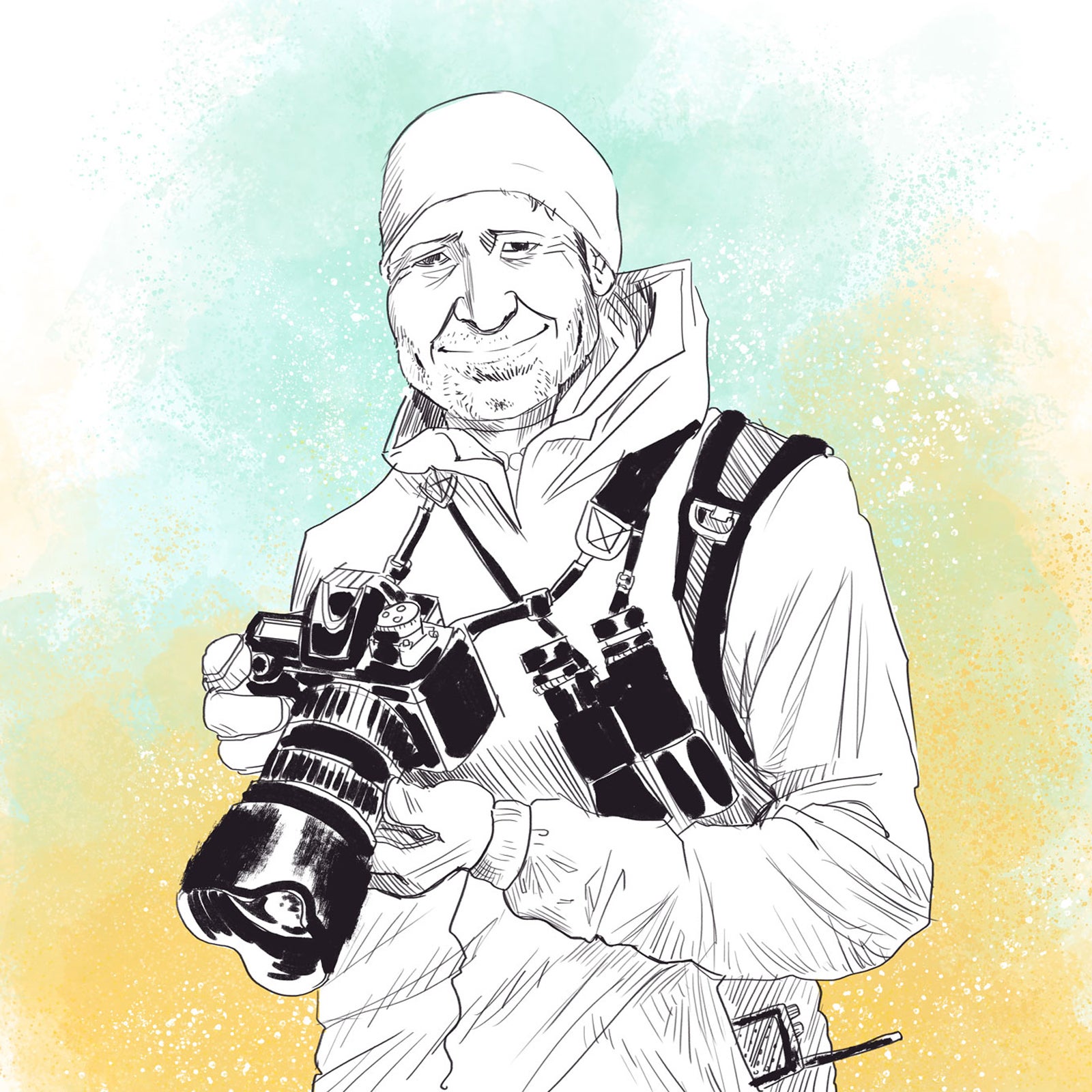Name: Nikita Ovsyanikov
Job: Behavioral scientist
Home Base: A small village 250 miles northwest of Moscow
Age: 67
Education: Studied zoology at Moscow State University
When he was just three years old, Russian Nikita Ovsyanikov told his mother that he wanted to work with animals. He stuck to his word. Ovsyanikov grew up to study biology and zoology at Moscow State University, then spent over a dozen years studying the Arctic fox. In 1990, he switched his focus to an even bigger animal: the polar bear.
To observe these creatures in the wild, he spent years living on remote Wrangel Island, a polar bear denning location in the East Siberian Sea. “If you want to know how animals live, what their interaction with their environment is like, you have to observe it,” Ovsyanikov says. “When I decided to do this kind of research, I had to choose to live in the wilderness. The more of your own lifetime you invest in this activity, the more you learn.”
Now mainly retired from field research, Ovsyanikov works as a guide and lecturer with Arctic-tourism outfitter . We called him at his remote cabin to talk about his life’s work.
On Why He Picked Polar Bears: “I was studying Arctic foxes, and I started to understand them. So I thought, Let’s look at how this larger Arctic predator is managing life. I knew there was almost nothing known about the social life and behavior of polar bears.”
On the First Thing He Does When He Wakes Up in the Field: “I listen for wind and the sounds of tundra outside the cabin. The sound of the wind tells you whether or not there is a storm today. I make breakfast and preparations to go out for long daily observations. It’s important to prepare yourself for long stretches outside in the cold and wind to observe animals. You can only step out when you are physiologically and psychologically ready—prepared, warmed up. In the Arctic, you can’t do this work effectively if you jump out of bed, then run from the cabin, not being warmed up, as people usually do in big cities. If you do that in the Arctic field, you might get in trouble by making mistakes, or you would miss important events that are happening around you.”
On How He Lives Among Polar Bears: “You can’t make yourself invisible to animals—they’re smart, they see what’s in their territory, they’ll come investigate you. So you have to convince them that you’re a harmless creature. I have to present myself not as a hunter but that I’m living there alongside them. Year after year, they know when you’re in this cabin, you’re not posing any threat to them.”
On How He Stays Safe: “I never considered having firearms. From the beginning, my philosophy was that my presence and my ambitions there in no way should result in the polar bears losing their lives. In my more than 2,000 encounters with polar bears on the ground, I experienced only four cases of serious aggression, where polar bears attacked with motivation to kill me. I provoked each of those incidents myself, by making some kind of mistake in my behavior, so I developed a nonlethal approach that combines behavioral rules with the use of only nonlethal bear deterrents, like pepper spray or a wooden stick.”
On the Most Fulfilling Part of His Job: “All animals are very individual. The major pleasure for me working with polar bears is to discover their personal characters. It’s like opening another world.”
On the Hardest Part of His Job: “You have to suffer bad weather, drive long distances. If your snowmobile breaks in the tundra, you have to walk 40 kilometers [25 miles] to the cabin. The hardest part is surviving the extremes of the Arctic environment.”
On the Biggest Misperception People Have About Polar Bears: “Most people see polar bears as killing machines. Yes, polar bears are predators. Their main task in life is to survive. They have powers and instruments to kill. But that is only one side of them. People do not know that polar bears are the most cautious animals on earth. Biologically, this is very logical. They make their living by hunting, so if they get injured or become incapable in any way, they would not be able to hunt. They’re very personal, very psychologically advanced, very intelligent. They’re actually very sensitive and gentle.”
On the Biggest Misperceptions People Have About Him: “Quite a few times I have heard that I am this crazy man who walks among polar bears. Some people have even said they heard I got killed by polar bears. I wouldn’t be there if I wasn’t 100 percent confident that I could manage this in a safe way. If I got killed or injured, it would put a very bad shade on polar bears.”
On the Biggest Threat to Polar Bears: “Extermination by humans—hunting and poaching. Global warming is a threat, but polar bears have survived several major global warmings in the past. When they are forced by climate change to spend more time on land, they are exposed to more encounters with humans.”
On What We Can Learn from Polar Bears: “If you want to know what it means to be a good mother, watch polar bears with their young—how they share responsibilities, how they take care of their territory, how they care for their kids. They are extremely careful and cautious mothers. They’re also very demanding and strict. If the kids do something wrong, their mothers correct them.”
On His Biggest Fear: “That humans will not change their philosophy and attitude, and will continue exterminating animals, and we’ll lose them from this earth. That’s the worst thing we can do. I’m not afraid of the polar bears.”


